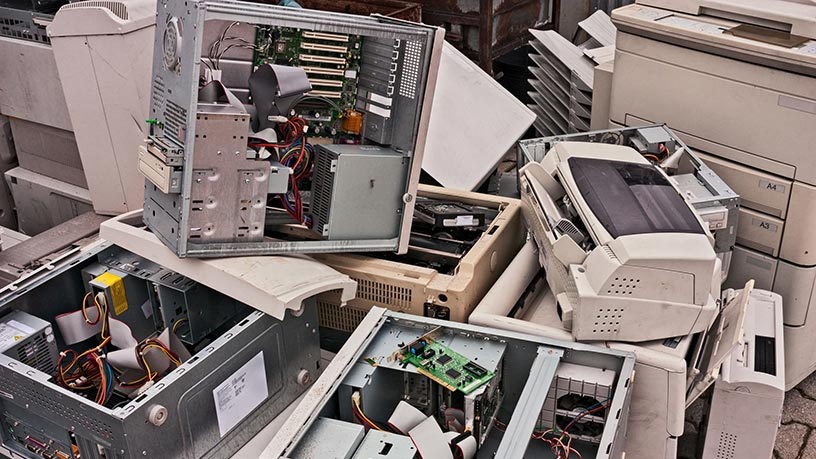
The e-Waste Association of SA (eWASA) has launched the WEEE-Africa Forum, a not for profit association, with the aim of creating a uniform standard for the treatment and handling of electronic waste (e-waste) across Africa.
This as the problem of illegal dumping of electronic waste continues to rear its ugly head, especially in Africa.
The UN Office on Drugs and Crime recently reported that West Africa has become a major destination for e-waste, together with some Asian countries.
The United Nations Environment Programme estimates that close to 50 million tonnes of e-waste is generated each year, with only 10% of it being recycled. It adds that 60-90% of the waste is being illegally traded and sent to Western Africa and Asia.
Instead of recycling in the Western countries, the waste is being shipped to Africa, where it accumulates in toxic dumps.
Safe collection
Keith Anderson, founder of eWASA, says the WEEE-Africa Forum strives for a single set of standards that will govern the collection and treatment of all e-waste in an environmentally safe manner in Africa.
"The intention is get all stakeholders, government, OEMs, manufacturers, retailers and distributors to buy into the proposed standard, similar to the WEEELABEX standard used in Europe," he notes.
The Waste Electrical and Electronic Equipment Directive became a European law in 2003. It is a set of collection, recycling and recovery targets for all types of electrical goods in Europe.
"While we acknowledge the enormity of the task ahead, we are confident that with the assistance of our partners, both locally and internationally, and in the true African spirit of Ubuntu, we will be successful," says Anderson.
"Without a uniform standard in place, you will not have a level playing field and this will create fertile ground for 'fly by nights' and 'freeloaders' to proliferate and dumping will occur. In Europe, they have already created such a standard."
eWASA has committed to covering the launch costs and running the secretariat for the first year, while it approaches potential funders whose participation is vital to the long-term success of the project.
"Since our soft launch last week, we have already received positive feedback from interested parties. This is a long-term project due to the fact that in a number of African countries, no infrastructure exists, so we will have to start from a zero base. However, we intend to target the countries that already have some infrastructure in place first, and then build from that," Anderson adds.
The continued increased use of technology across the social spectrum in Africa is leading to an increase in the amount of e-waste generated per capita, he explains.
"Therefore, by default, if we do not start the process of proper treatment now, it will become a huge problem down the line. The ongoing shipments of illegal e-waste into Africa continue despite the good efforts of many African countries to try and stop this at their borders."
eWASA believes Africa can, therefore, better manage its e-waste by adopting a uniform standard, sharing knowledge and data, education and training, legal compliance and penalties.
"In addition, adopting a uniform standard will lead to significant job creation opportunities and SMME growth, which will translate into beneficiation opportunities and economic benefit in these countries from secondary raw materials."
SA trends
On the South African e-waste front, Anderson says due to the very large informal sector that is recycling, there is no empirical data available to substantiate the volumes they may be processing, and "we currently assume that an accurate figure based on formal recycling is between 7% and 12% of all e-waste placed on the market that is currently being recycled".
He points out that e-waste generation has grown on average from around 250 kilotonnes per annum in 2012 to around 321 kilotonnes in 2016, based on a growth rate of around 4% per annum, but this figure could be sitting at 360 kilotonnes per annum of e-waste generated.
According to Anderson, the latest "Global E-Waste monitor 2017 Report" shows SA at 0.3 metric tonnes per annum of e-waste being generated.
Share